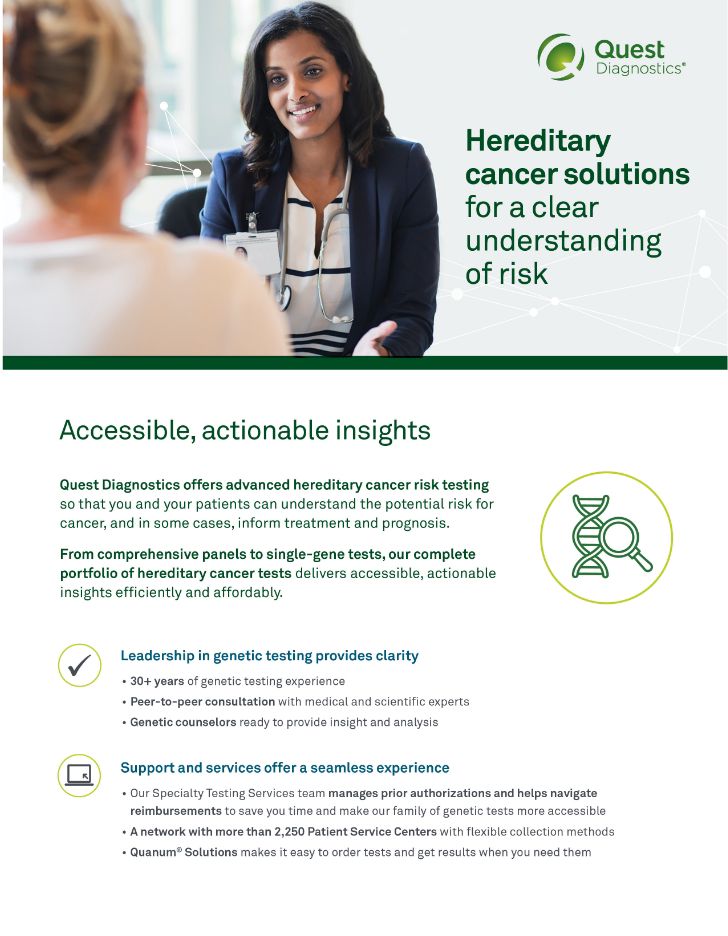The right hereditary cancer test for the right patient at the right time

Quest Diagnostics offers advanced hereditary cancer risk testing so that you and your patients can understand the potential risk for cancer, and in some cases, inform treatment and prognosis. From comprehensive panels to single-gene tests, our complete portfolio of hereditary cancer tests delivers accessible, actionable insights efficiently and affordably.

The Comprehensive and Guideline-Based Hereditary Cancer Panels include genes associated with a broad spectrum of hereditary cancers. This can include, but is not limited to, cancers of the breast, colon, endometrium, ovary, pancreas, prostate, rectum, skin, neuroendocrine system, and other tissues.
Our hereditary cancer panels give you a clearer picture of a patient’s risk for certain hereditary cancers along with clinical insights that can help you and your patients make more informed decisions about the care pathway. The panels include genes selected following medically accepted guidelines and can be collected using saliva or blood.
Individuals who have a variant in a cancer predisposition gene have a higher risk for developing certain types of cancer. We offer syndrome-specific tests that analyze genes that can be associated with different cancer syndromes, including Lynch syndrome, ovarian, pancreatic, familial adenomatous polyposis, and others.
In some instances, a single-gene or single-site test may be preferred over a larger genetic testing panel. This is especially true when a patient’s diagnosis or family history strongly suggests a certain syndrome or there is a known variant in the family.

Only a patient’s treating physician can make diagnoses, prognostic or treatment decisions based on the knowledge of the patient, history and clinical/educational experience. Quest lab testing provides information for the physician to use in helping make such decisions.
Please talk to your Quest representative for ordering information on our comprehensive portfolio of hereditary cancer test offerings.
Hereditary cancer links